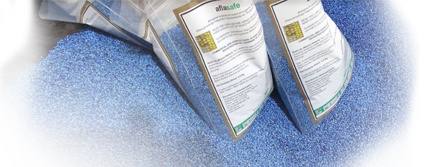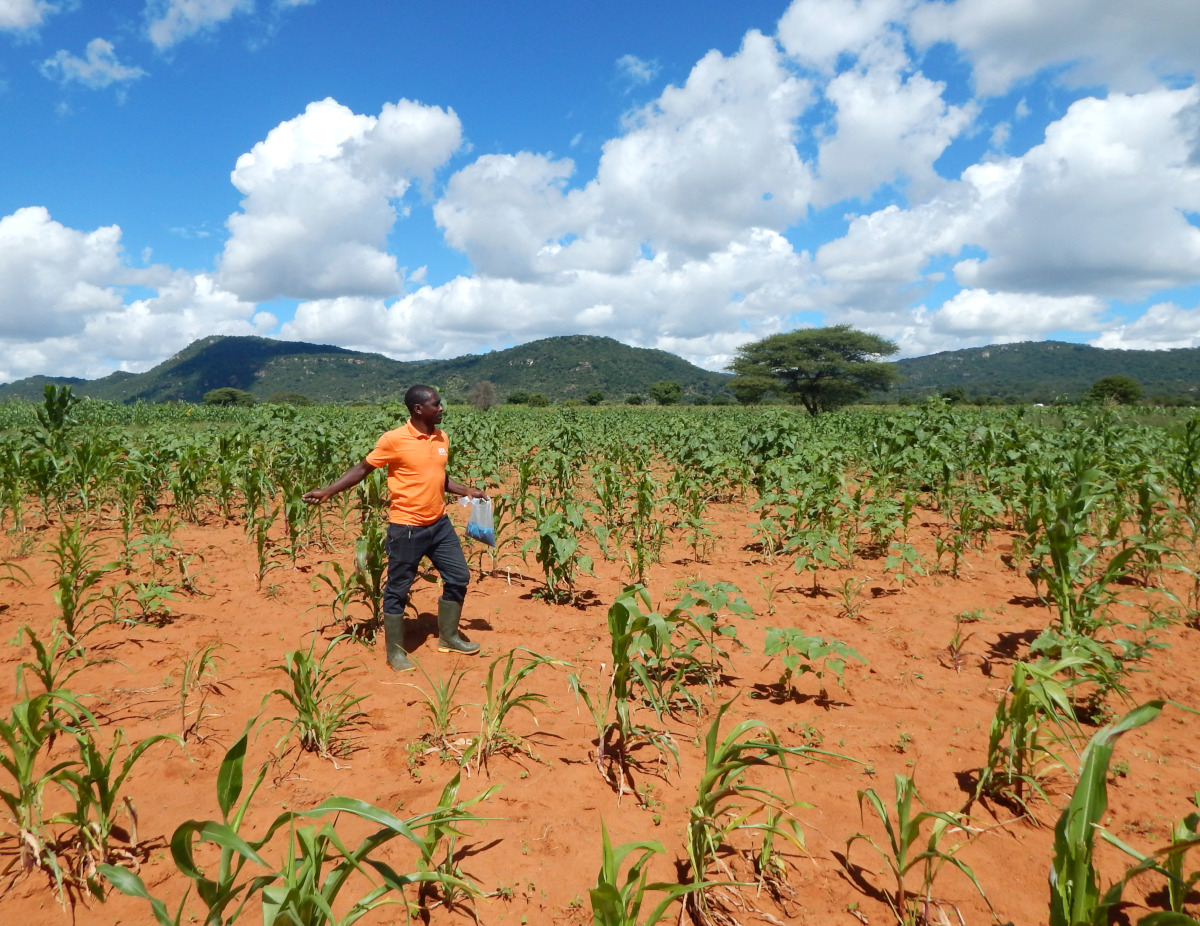
We’re delighted to announce that, in another leap towards commercial availability, the registration of Aflasafe TZ01 with the Tropical Pesticides Research Institute in Tanzania was completed in October 2018. This opens the way for it to be manufactured and distributed locally, and used by maize and groundnut farmers to slash the amount of dangerous aflatoxin in the food and animal feed they grow.
“Registration of Aflasafe is expected to reduce aflatoxin contamination in agricultural crops and products, thus leading to enhanced household food, nutrition and income security,” said Beatrice Pallangyo, Principal Agricultural Officer in the Ministry of Agriculture – Plant Health Services and a collaborator in the development of Aflasafe TZ01.
Tanzania is the seventh African nation with a tailormade Aflasafe product available to the public. Commercialisation is led by IITA’s Aflasafe Technology Transfer and Commercialisation initiative (ATTC), in a rolling programme that allows us to focus intensely on a few countries at a time, and apply our early lessons to those that come a little later.
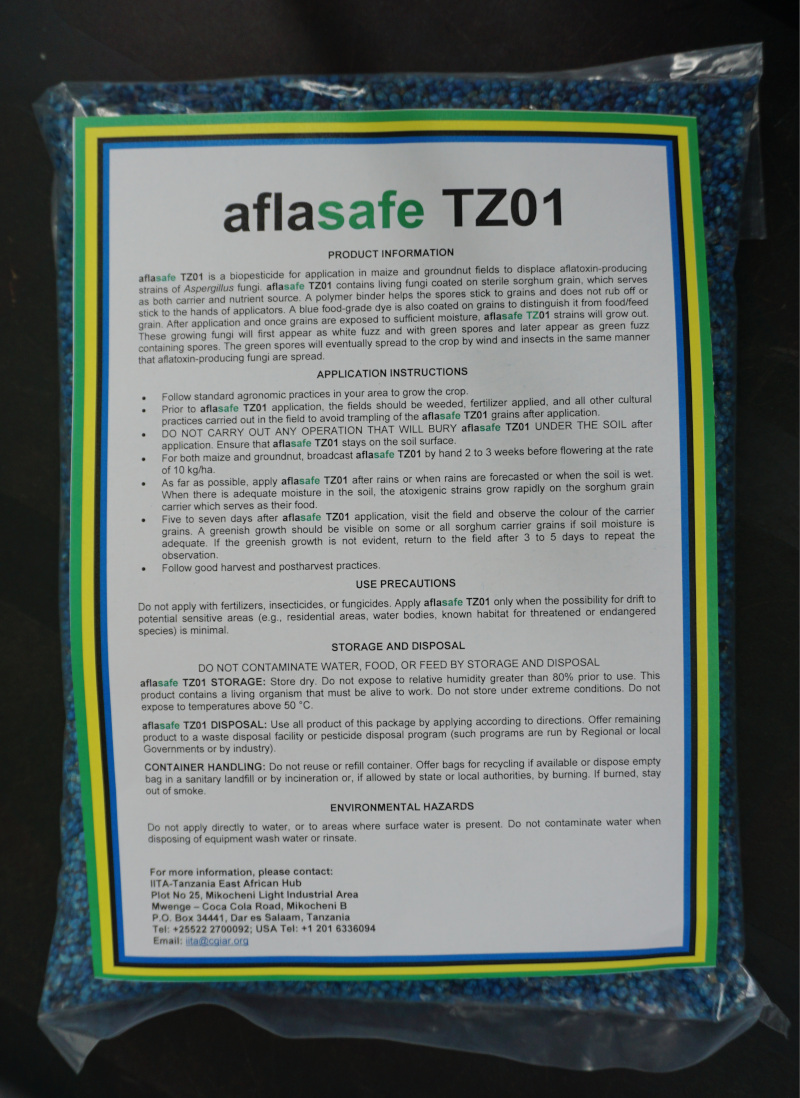
“The registration of Aflasafe is very good news for the country,” said Dr George Mahuku, IITA plant pathologist based in Tanzania, who spearheaded the efforts to develop Aflasafe TZ01. “We have tested the efficacy of Aflasafe TZ01 on maize in eight districts – Chamwino, Chemba, Kibaigwa, Kilombero, Kilosa, Kiteto, Kondoa, and Kongwa – and on groundnuts in four districts – Kongwa, Masasi, Mpwapwa, and Nanyumbu – with excellent results.”
Aflasafe takes a revolutionary and all-natural approach. Aflatoxin is made by a common fungus that is almost impossible to eradicate. Instead of trying to kill the toxin-makers directly, Aflasafe works by sending hordes of related but harmless fungi into farmers’ fields, crowding out and overwhelming the bad guys. The friendly fungi are all found locally, making Aflasafe a green, environmentally friendly and safe solution, as well as a highly effective one: in our tests across Tanzania Aflasafe cut aflatoxin contamination by at least 80% – and often much more.
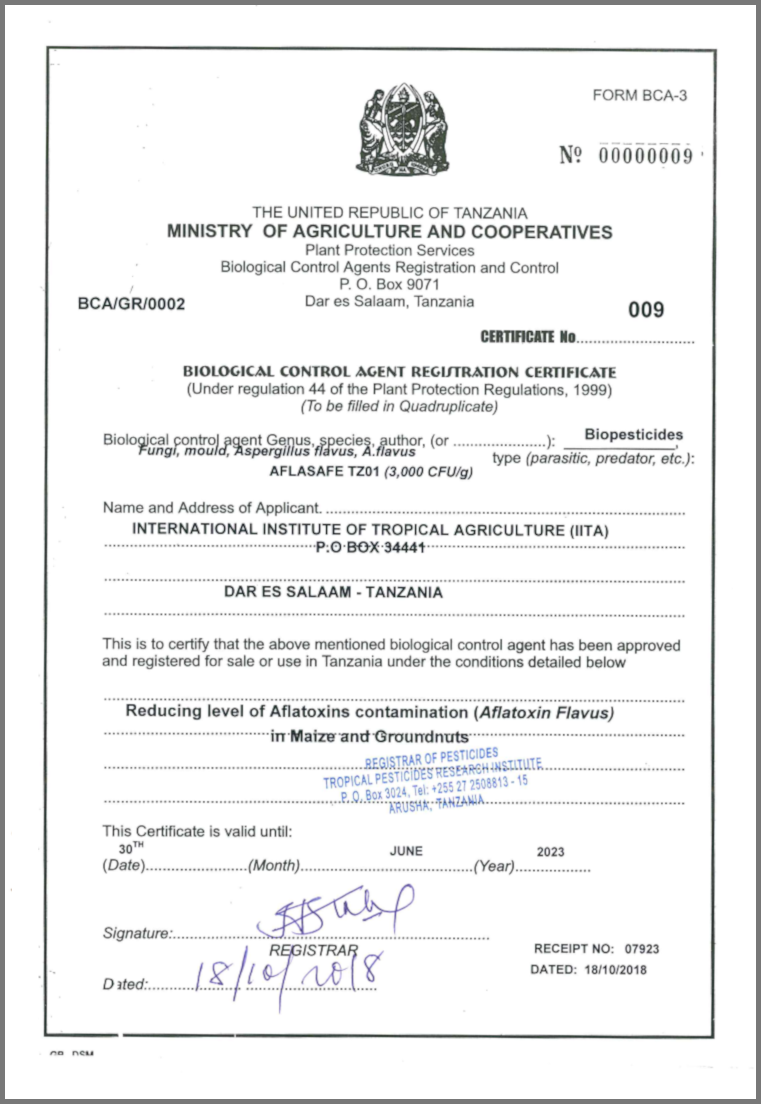
Why is this so important? As in many African countries, the aflatoxin menace is widespread in Tanzania and almost everyone is exposed from the earliest age: more than 90% of breastmilk has unsafe levels of the toxin. Aflatoxin is a serious threat to health, causing liver cancer, weakening our defences against illness, and stunting children’s development. A study in Tanzania estimated that in 2014 around 3,334 people came down with liver cancer caused by aflatoxin, of whom a distressing 95% would die of the disease. This sickness and loss took away more than 96,000 years of healthy future life from the sufferers. The economic impact, due to liver cancer alone and in a single year, was estimated to be in the region of USD 6 million to USD 264 million.
Aflatoxin also damages the health and productivity of livestock, and – because many buyers won’t purchase contaminated grain – closes off lucrative markets to Tanzanian produce, particularly for export. Getting Aflasafe out into the hands of farmers ultimately means better health for the people of Tanzania, as well as improved incomes and trade possibilities.
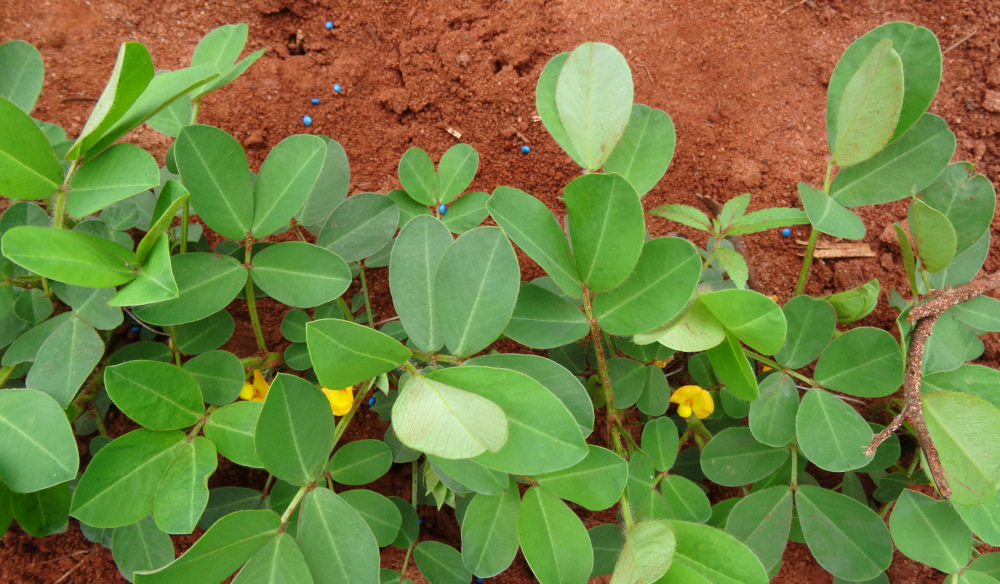
Alongside the major milestone that is registration, the ATTC team have also spent the final quarter of 2018 advancing Aflasafe commercialisation by building relationships and continuing their search for local partners with the right expertise to produce, distribute and market the product in Tanzania on a sustainable, long-term basis. Following on from September’s Investors Forum, which set out the business opportunities that Aflasafe offers, ATTC has since narrowed down to a few possible partners, with whom we’re now closely working on business planning to examine how a potential relationship might work for both parties, and get deep into the detail of commercialisation for the long-term. All the companies that we are in dialogue with have impressed us with their strengths, and we look forward to making a final selection in 2019, and to working together to kickstart local manufacture and widespread availability of Aflasafe in Tanzania.
Travel with us as we embark on our momentous – and rapidly advancing – Tanzanian journey!
LINKS
- Previous news from Tanzania:
- More from IITA: Tanzania registers AflasafeTZ—the effective technology to combat aflatoxin
- Keep up with the latest on Aflasafe in Tanzania

